Muzaffarpur is situated in north Bihar and is considered a highly populated district with a population of 4,801,062 as per the 2011 census. Muzaffarpur district is served by rivers Gandak, BudhiGandak, Bagmati, and Lakhandei. Many streams pass through the district. The area has been prone to floods. Muzaffarpur district occupies an area of 3,175.9 square kilometers. The district has 16 administrative blocks, 385 panchayats, and 1811 villages. For the wholesome development of the district, it has been involved in the Aspirational district programme by the Government of India in 2018.
On March 24, 2020, the Honorable Prime Minister of India announced the first lockdown to control the rapidly growing cases of coronavirus in India which resulted in the sudden closure of factories, shops, commercial set-ups, and workplaces. People in the unorganized sector, working as contractual laborers and daily wage workers; without any income were forced to move back to their homes.
At such a time of pandemic with a huge inflow of migrants returning to Muzaffarpur district. The district administration took quick action with the primary focus to ensure safe checkups of all the returnees on the railway station and bus stops, therewith providing them with food and water packet 250 buses were arranged outside the railway station to take migrants to the registration camps established at the district level for proper data recording of the migrants. After the registration is done the migrants were then sent to quarantine camps established at 16 blocks of the district. As of date, the district has 982 quarantine camps with a capacity of 70010 patients. Rapid antigen test centers are established at all the 16 PHCs of the blocks.
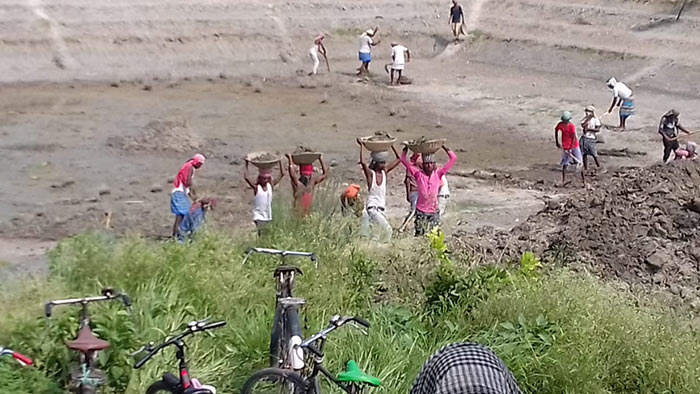
District administration left no stone unturned by setting up multiple cells like COVID-19- Sample and testing cell, patient’s management cell, resource management cell, ambulance and mortuary van management cell, monitoring, and 24*7 telemedicine cell, containment zone management cell, call center response cell and likewise. Regular review meetings in the chairmanship of District Magistrate takes place to overcome challenges and gaps in the progress of COVID related work.
To cater to the needs and demand of employment generation for the migrants, the district administration did a complete skill mapping, counseling and analysis of 46,197 reverse migrants till date. MGNAREGA job cards, ration cards a d bank accounts were created for the reverse migrants to provide them with better job opportunities in their home district.
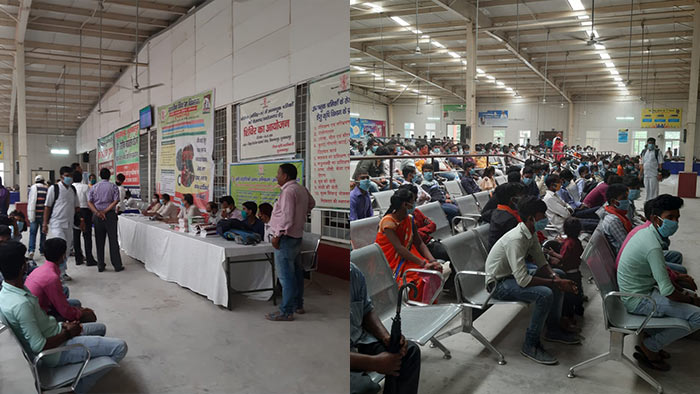
Training, counseling and skill mapping session organized at DRCC, Muzaffarpur
Shramik Udyami Cluster Yojana. 7 clusters are identified to be set up at various blocks. As per the skill mapping done, these clusters will be established to employ by setting up a readymade garment manufacturing unit, sweets Packaging boxes unit, Lehthi (Lac Bangle) Park, mobile charger assembling unit, and paver blocks manufacturing unit. Each cluster will start with the inclusion of 25-30 members initially therewith providing employment to 200-300 people in the area. Cluster head, deputy head and accounts lead are elected amongst the group members through cluster meetings. These clusters are registered as Limited Liability partnership entities to ensure sustainability and proper workflow at these centers.
Regular meetings with District Planning Office, Officials from DRDA, GM-DIC, Officials of PulNirman Nigam, Labor Superintendent, and concerned officers take place under the chairmanship of DM and DDC, Muzaffarpur.
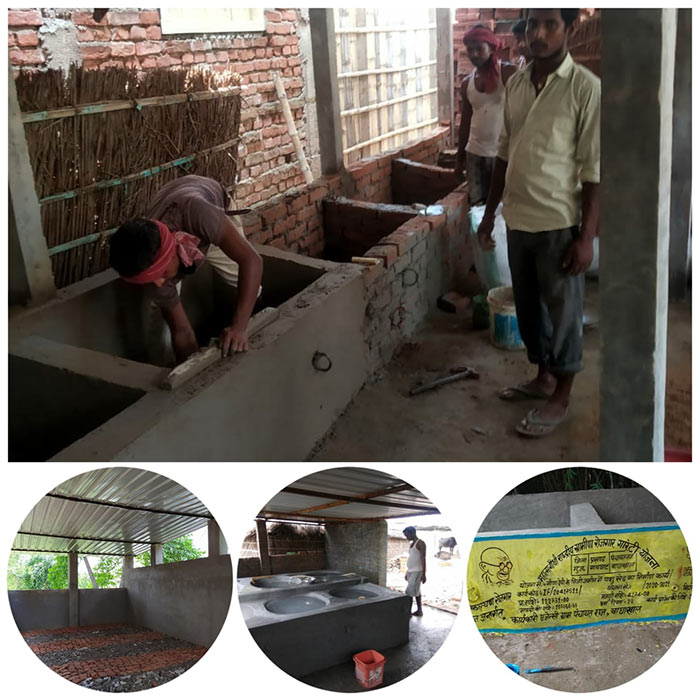
Construction work done under GKRA
8135 schemes are leveraged under the central government’s Garib Kalyaan Rozgaar Abhiyaan to provide maximum employment to the returnee migrants, out of which more than 2500 schemes are covered till date in Muzaffarpur district. 7, 85,150-man-days are generated to date. Various activities and initiatives are started to employ reverse migrants. Activities include plantation drive, rainwater harvesting works, soak pit construction, rejuvenation of wells, construction of community toilets, Anganwadi construction and up-gradation of infrastructure, up-gradation and construction of Panchayat Sarkar Bhawan, cattle sheds construction, construction of goat sheds, solid and liquid waste management under Lohia Swaccha Bharat Abiyaan.
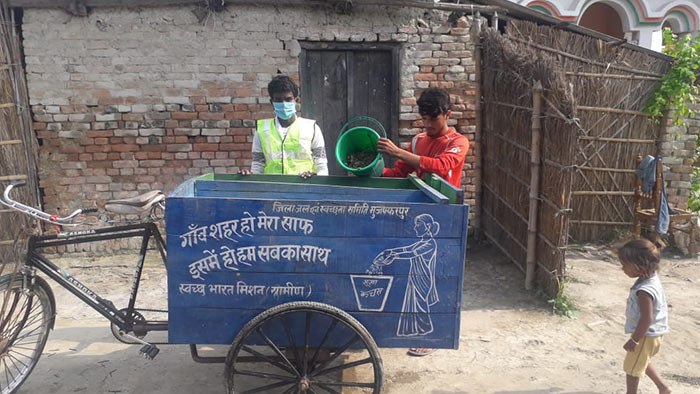
Glimpse of work done under Lohia Swaccha Bharat Abiyaan by a returnee migrant.
In order to make the community more self-reliant under Atmanirbhar Bharat, it is important to work towards creating sustainable options focusing more on improving the economic condition and living standards of people. District Administration, with the support of Jeevika, is focused on providing maximum support to establish small scale businesses in the district. This is not only helping people to get more self-reliant but also improving the living standards for reverse migrants post COVID.
From improved healthcare facilities to skill mapping to providing the best possible employment opportunities, district administration, Muzaffarpur is on its toes to uplift the status of reverse migrants, returnee laborers, and many others whose lives are affected due to the COVID-19 pandemic and lockdown.
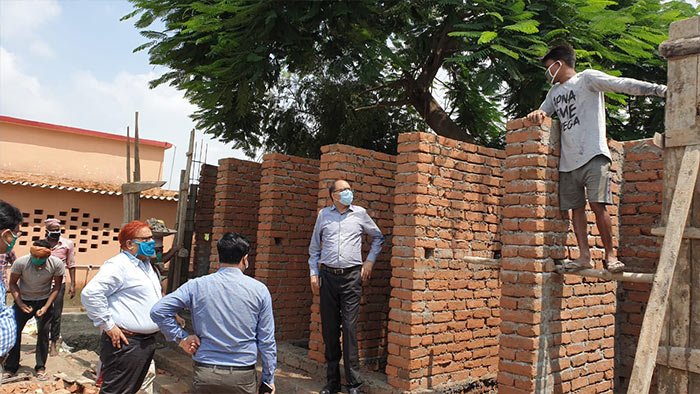
Monitoring and evaluation of work done by DM and DDC, Muzaffarpur

